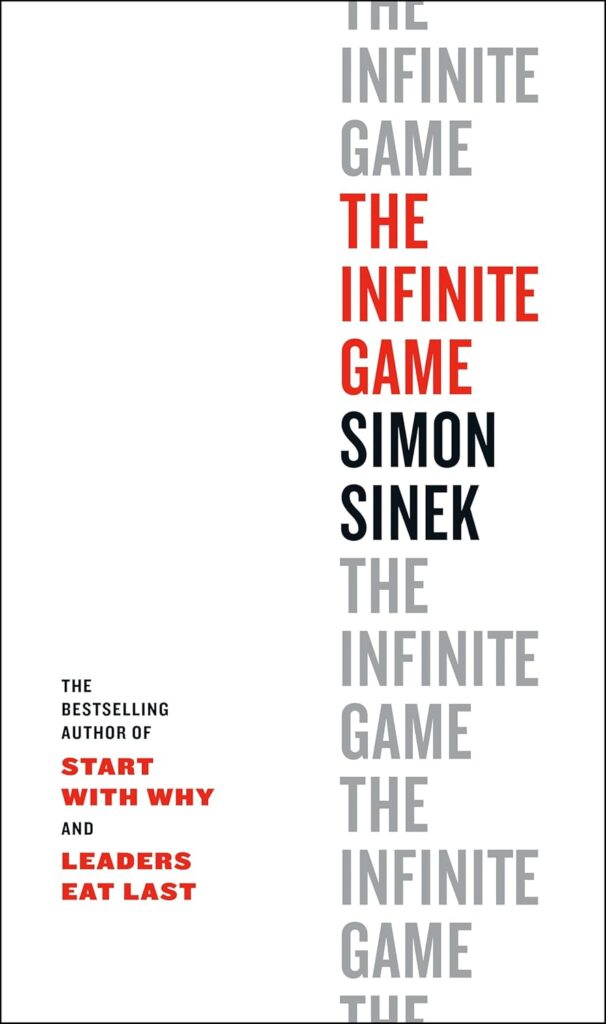Simon Sinek’s The Infinite Game isn’t just a book; it’s a blueprint for abandoning the rat race of short-term wins for a strategy rooted in endurance, purpose, and adaptability. In a world caught between rigid goals and unpredictable landscapes, Sinek posits that understanding whether you’re playing a finite or infinite game is the difference between thriving and burning out. For leaders, businesses, and anyone driving significant change, his framework is both a philosophy and a battle plan.
Table of Contents
Understanding the Difference: Finite vs. Infinite Games
If life sometimes feels like chaos wearing a game face, that’s because not all games are the same. As Sinek explains, finite games have clear players, rules, and winners. Infinite games, on the other hand, are messy, evolving, and never-ending. The real question is: which one are you playing?
Finite Games: Clear Rules, Boundaries, and Winners
Finite games are simple—think about chess or football. There are explicit rules, agreed-upon objectives, and a clear endpoint. Most traditional businesses also thrive on this finite mindset: quarterly revenue targets, market share battles, or being “number one” in a specific industry. While these measures are easy to track, they are also misleading. Why? Because winning today doesn’t build a future. Companies clinging to finite goals may dominate briefly but crumble when circumstances shift.
Amazon founder, Jeff Bezos, exemplifies this tension. Bezos often emphasized decision-making for the long-term. That’s an unmistakable sign of someone resisting the short leash of a finite game.
Infinite Games: Sustaining Play Beyond Winning
Infinite games, by contrast, are expansive and limitless. Their purpose isn’t to win but to sustain meaningful participation. When applied to business, an infinite mindset reframes success. It’s about creating enduring value, not temporary gains. Organizations like Patagonia, renowned for its environmental activism, don’t chase fleeting trends; they focus on principles that stretch over generations.
In an infinite game, challenges aren’t obstacles; they’re opportunities. Think of these organizations as marathoners, not sprinters—they’re looking to outlast.
More on these distinctions can be found in Sinek’s introduction to The Infinite Game.
The Core Principles of Playing the Infinite Game
At the heart of Sinek’s vision are five principles that embody the infinite mindset. Each offers a guidepost for leaders intent on building organizations that endure.
Just Cause: The Vision of a Higher Purpose
A Just Cause isn’t just a mission statement; it’s a rallying cry. It’s the kind of vision that makes people show up, not because they have to, but because they genuinely care. It transcends profits and aligns organizations with a cause worth pursuing no matter the obstacles. For example, Tesla’s vision of accelerating the world’s transition to renewable energy keeps it pushing forward despite consistent scrutiny and risk.
Having a Just Cause ensures you’re not playing a game of musical chairs—you’re creating a movement.
Build Trust through the Circle of Safety
Trust isn’t a warm-and-fuzzy HR concept; it’s a pillar of innovation and courage. In Sinek’s Circle of Safety, employees feel protected enough to take risks, share ideas, and, most importantly, learn from failures. Without trust, teams crumble under the pressure of perfectionism. Trust is the currency of infinite success.
Worthy Rivals: Competition Reimagined
Sinek doesn’t frame competition as war but as a mirror. Rivals shouldn’t be viewed as threats but as invaluable sources of feedback. A worthy rival might expose weaknesses, offering you a chance to grow. Microsoft and Apple, though often seen as adversaries, focused as much on self-improvement as on overshadowing one another.
Existential Flexibility: The Key to Adaptability
Existential flexibility isn’t about minor tweaks; it’s about pivoting when your long-term vision demands it. Think of Netflix—initially a DVD rental service—transforming into a global streaming giant. That bold pivot, born out of existential clarity, is why Netflix still thrives while others fade.
Leading with Courage despite Short-Term Challenges
Courage doesn’t always look like a hero’s cape. Sometimes, it’s sticking to your values when data marches in the opposite direction. For leaders in an infinite game, courage is knowing the cost of decisions isn’t just quantified in dollars but also in trust deposits and cultural cohesion.
Discover the practical application of these principles on platforms such as The Beautiful Truth.
The Role of Leadership in an Infinite Game
Infinite games demand leaders who transcend profit margins and create enduring institutions. These leaders don’t just lead companies—they steward movements.
Chief Vision Officer: A Leader’s Primary Role
An infinite leader’s most important job isn’t micromanagement or tracking incremental KPIs. It’s being a “Chief Vision Officer,” safeguarding the long-term vision while rallying a cavalcade of believers. Leaders like Tim Cook at Apple remind us that even successors can sustain a Just Cause by staying anchored to principles.
Balancing Ethical Standards and Measurable Goals
Here’s the tough part: profitability and ethics sometimes wrestle each other. In the infinite game, leaders must resist trading long-term values for short-term metrics, especially under shareholder pressure. Ethical compromises may boost quarterly profits but destroy a company’s most valuable asset—its reputation.
Explore how leaders like Simon Sinek address these dilemmas through lessons in books like The Infinite Game.
Impact of an Infinite Mindset on Organizational Success
Organizations that embrace infinite thinking do more than survive—they thrive with purpose.
Fostering Resilience through Shared Purpose
When organizations align their objectives with a Just Cause, employees feel invested. This isn’t about punching a clock; it’s about pursuing something bigger than yourself. Shared purpose provides resilience in the face of market dips and adversities.
Building a Culture of Trust and Adaptability
A healthy culture isn’t a happy accident. Creating a Circle of Safety builds teams ready to weather uncertainty and existential pivot moments. Flexibility grows in this fertile soil, ensuring any storm is just another step in the journey.
For real-world applications, find examples in summaries of Sinek’s insights like Goodreads’ review of The Infinite Game.
Conclusion
We live in a world obsessed with rankings, passwords, and winning strategies, yet Sinek’s The Infinite Game reminds us not everything worth pursuing can be finished. Success, true success, isn’t about crossing the finish line; it’s about ensuring the race itself endures. Whether you’re leading a business, a family, or a movement, ask yourself: are you playing to win, or are you playing to last? The answer might just reshape everything.

